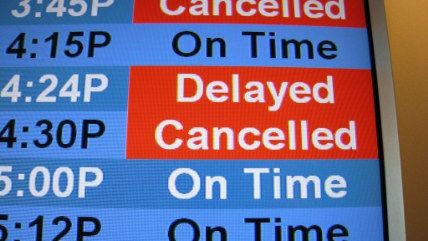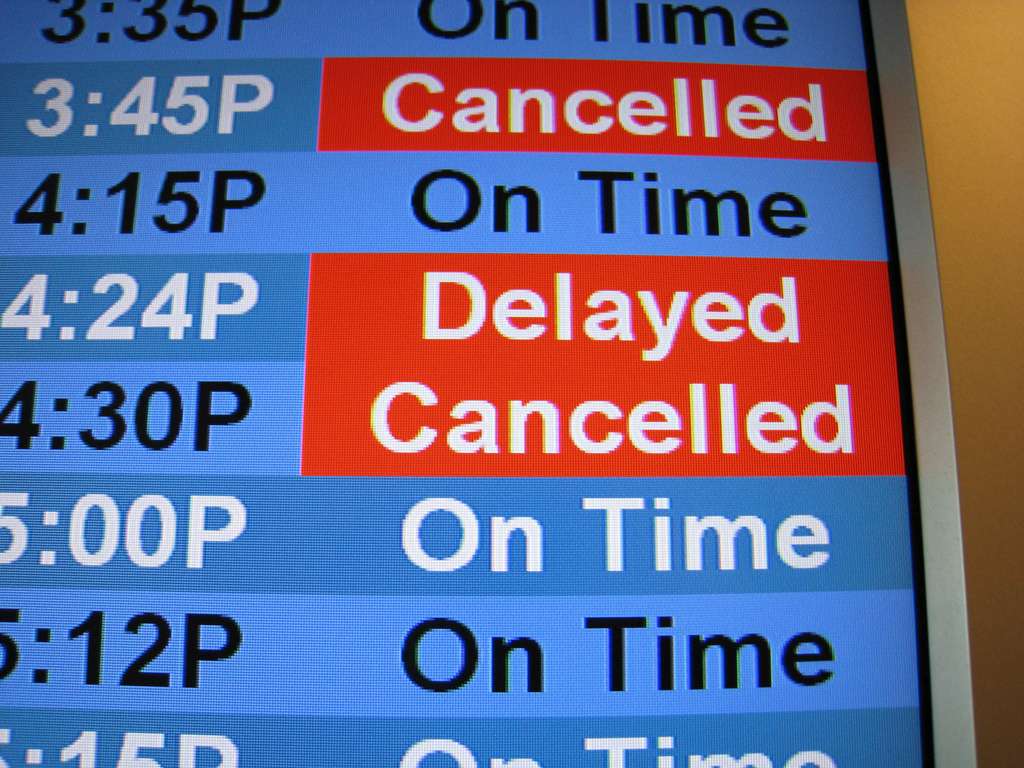How Government Aggravates Airline Delays
Federally mandated solution to tarmac wait times made problems worse.


Governments often act in response to perceived crises, which is not to say they act in ways that are helpful. The point is to be seen as doing something. The danger of a crisis is that it blinds policymakers to the fact that their remedies can cause more harm than they cure.
In the summer of 2007, the supposed emergency unfolded on airport tarmacs, where a small but noticeable number of commercial jets were stuck for hours waiting to depart. The passengers were unable to get to their destinations, but they were also unable to get off the plane. A February ice storm that hit New York stranded some travelers for 10 hours as food ran out and toilets filled up.
Congress might have assumed that in a competitive market, airlines that subjected their customers to intolerable conditions would be forced to improve or go bankrupt—as many carriers have done.
The airlines involved in these ordeals apologized and vowed to avoid any repetition. After travelers on one flight endured an eight-hour delay, an American Airlines official said, "This was an extraordinary circumstance. We have learned from it, and frankly we don't expect it to ever happen again."
Even in 2007, the worst year, these events were exceptionally rare. They soon got even scarcer. By 2009, the number of tarmac delays lasting three hours or more had declined by 64 percent.
But that improvement did not satisfy the Obama administration. In 2009, it decreed that if passengers on a plane are stuck on the tarmac for more than three hours, the carrier is liable for a fine of $27,500 per passenger—which on a typical flight could exceed $5 million.
"Airline passengers have rights," proclaimed Transportation Secretary Ray LaHood, "and these new rules will require airlines to live up to their obligation to treat their customers fairly."
But for almost every government action, there is an unwanted outcome. Threatening ruinous penalties worked beautifully in keeping passengers from being held for lengthy periods on the runway. Three-hour tarmac delays have gone the way of hot meals in coach, dropping by 99.6 percent. But that doesn't mean travelers are no longer being subjected to maddening snafus.
Scholars Vikrant Vaze of Dartmouth and Chiwei Yan, Allison Vanderboll, and Cynthia Barnhart of MIT found a less congenial effect: a sharp increase in flight cancellations. A carrier faced with the prospect of keeping a plane full of anxious passengers on board too long, incurring a heavy fine, often ends up scrubbing the flight.
In that case, passengers who might have waited four hours to take off may find themselves waiting even longer to catch another flight. They may be stuck at airports far from home, sitting or sleeping on the floor. They may miss connecting flights.
They may also incur expenses for food, lodging and other needs. Some of them won't ever get where they planned to go, because the delay renders the trip pointless.
Overall, the study found, "each passenger-minute of tarmac time saving is achieved at the cost of approximately three passenger-minutes in total passenger delays. This is due primarily to increases in flight cancellations." The authors' conclusion confirms the finding of a 2011 report from the federal Government Accountability Office.
This consequence was unintended but not unforeseeable. In fact, it was foreseen. In 2007, when the idea gained currency, a spokesman for the Air Transport Association of America warned: "You have to keep in mind, if there is legislation that imposes inflexible standards on a carrier's operations, that easily could have the unintended effect of inconveniencing customers more in some situations. It's not always the easy or the right choice to simply say, 'After a period of time, you have to go back to the gate.'"
The prediction was dismissed as special interest whining. No one was inclined to listen to people whose livelihood depends on accommodating the demands of the flying public. The assumption that government policymakers know better is one that stubbornly endures in Washington, despite being refuted over and over.
The reason this attempt to force change on airlines and passengers didn't work out well is the same reason so many government ventures founder. No one bothered to ask the crucial question for any new policy: "And then what?"
© Copyright 2016 by Creators Syndicate Inc.


Show Comments (23)